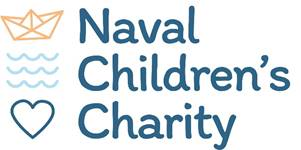Volunteers are sought for research into how children communicate with serving parents
Researchers are asking volunteers to come forward to assist with research on social media use among children who have a parent serving in the Navy.
Anglia Ruskin University’s Veterans and Families Institute for Military Social Research (VFI) is looking for recent leavers from the service (within the last 12 months), and either current or veteran Naval spouses and Naval children between 11-18 to contribute to focus groups on the topic.
The study will examine the advantages and disadvantages to children using this medium to maintain their relationship with their parents who are serving.
The research is being commissioned by the Naval Children’s Charity (NCC) as a follow up to The Impact of Service Life on the Military Child: the Overlooked Casualties of Conflict Update and Review Report, due to be launched next month and also compiled in partnership with the VFI.
ARU’s Dr Lauren Godier-McBard, lead investigator of the research, said:
“Over two-thirds of children over the age of 12 in the UK report using social media platforms, and increased screen time is associated with social and emotional challenges for children.
“For service children, social media provides an almost instant means of communicating with their serving parent. However, we know very little about how military families manage virtual relationships and the impact of this on service children.
“This project will be the first in the UK to speak to service children and their parents about how they communicate using social media during military separation. We hope to provide new knowledge that will help the Ministry of Defence and military charities to better support service families during separation.”
Clare Scherer, Chief Executive Officer of the NCC, said:
“We are delighted to be commissioning this important piece of research by ARU. Children of serving Naval personnel experience long separations whilst parents are deployed. This form of separation is particularly high for Naval families, personnel are deployed more often than those in the other Services and deployments tend to be longer, reaching up to nine months.
“For our submariner families communication remains even more difficult, with long periods where no communication is possible. How children keep in touch with their absent parents has changed significantly over the past ten years, but the use of social media and instant communication can cause anxiety and stress as much as providing positive connection.
“This research will enable the Naval Children’s Charity understand how our children and young people are coping and inform us as we help them and their families in the years to come.”
In order to explore the different challenges within different age brackets, the children will be separated into KS3, KS4 and KS5 groups.
For more information on signing up to contribute to this research, please contact Jo Bowser-Angermann (Joanne.bowser-angermann@aru.ac.uk) or Leanne Gray (Leanne.Gray@aru.ac.uk).

















